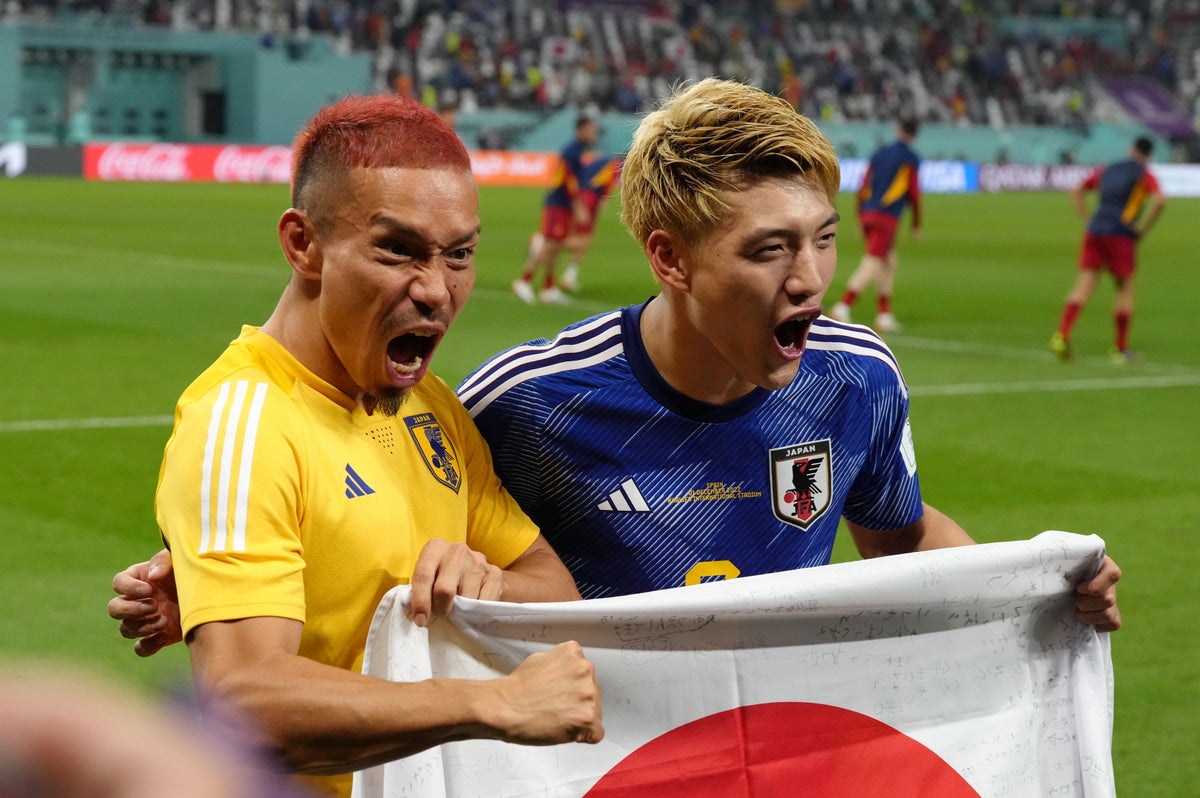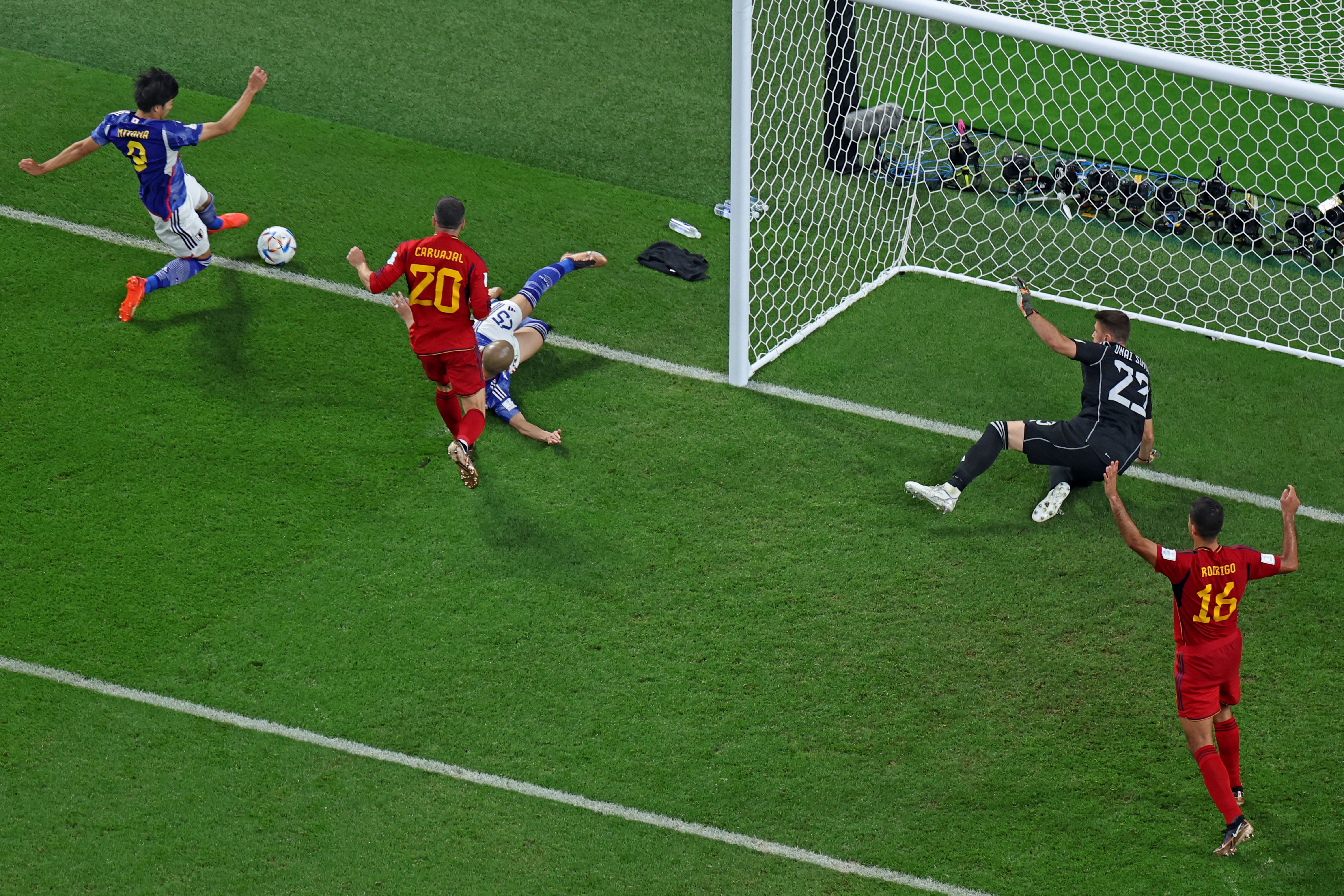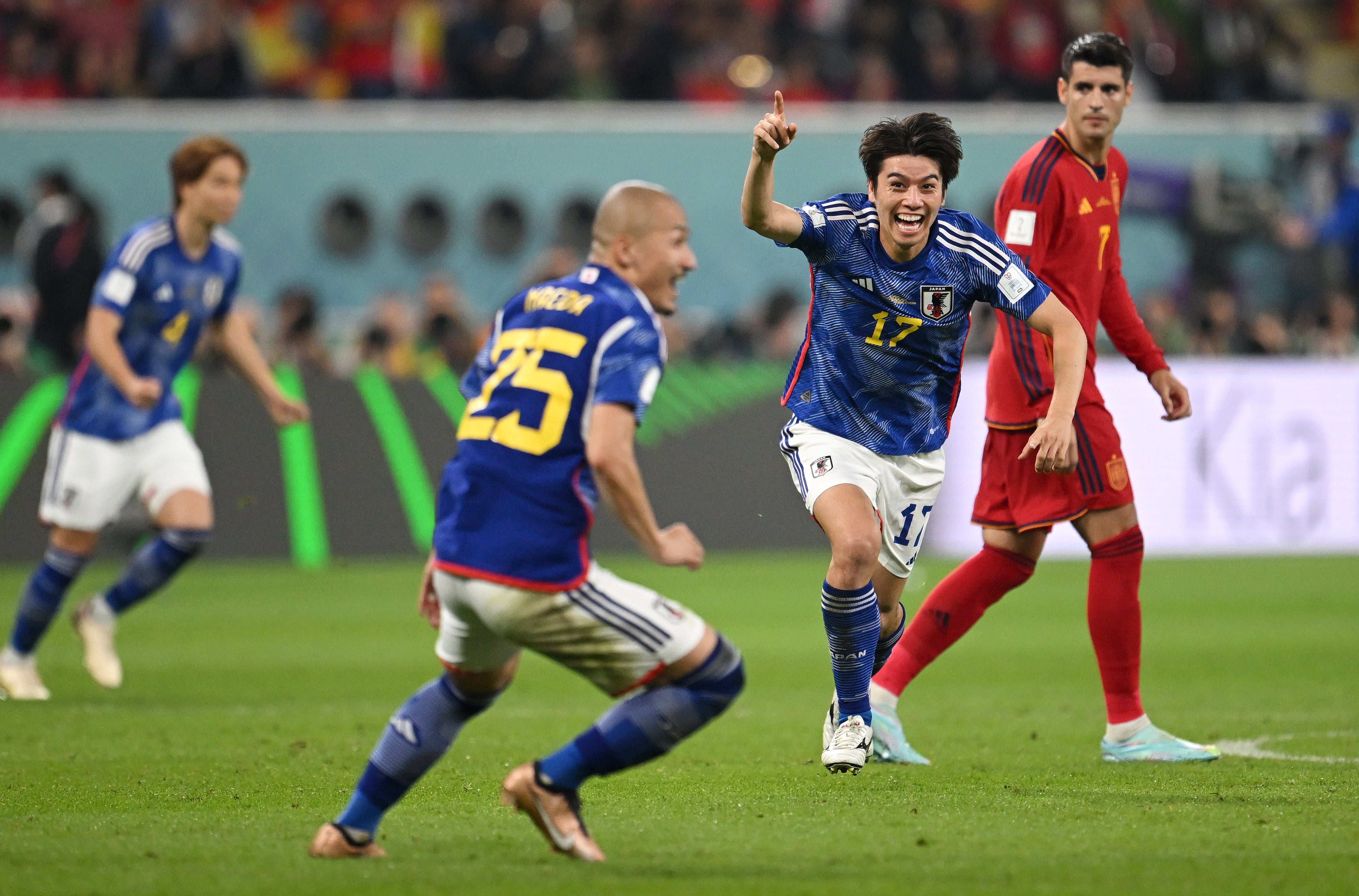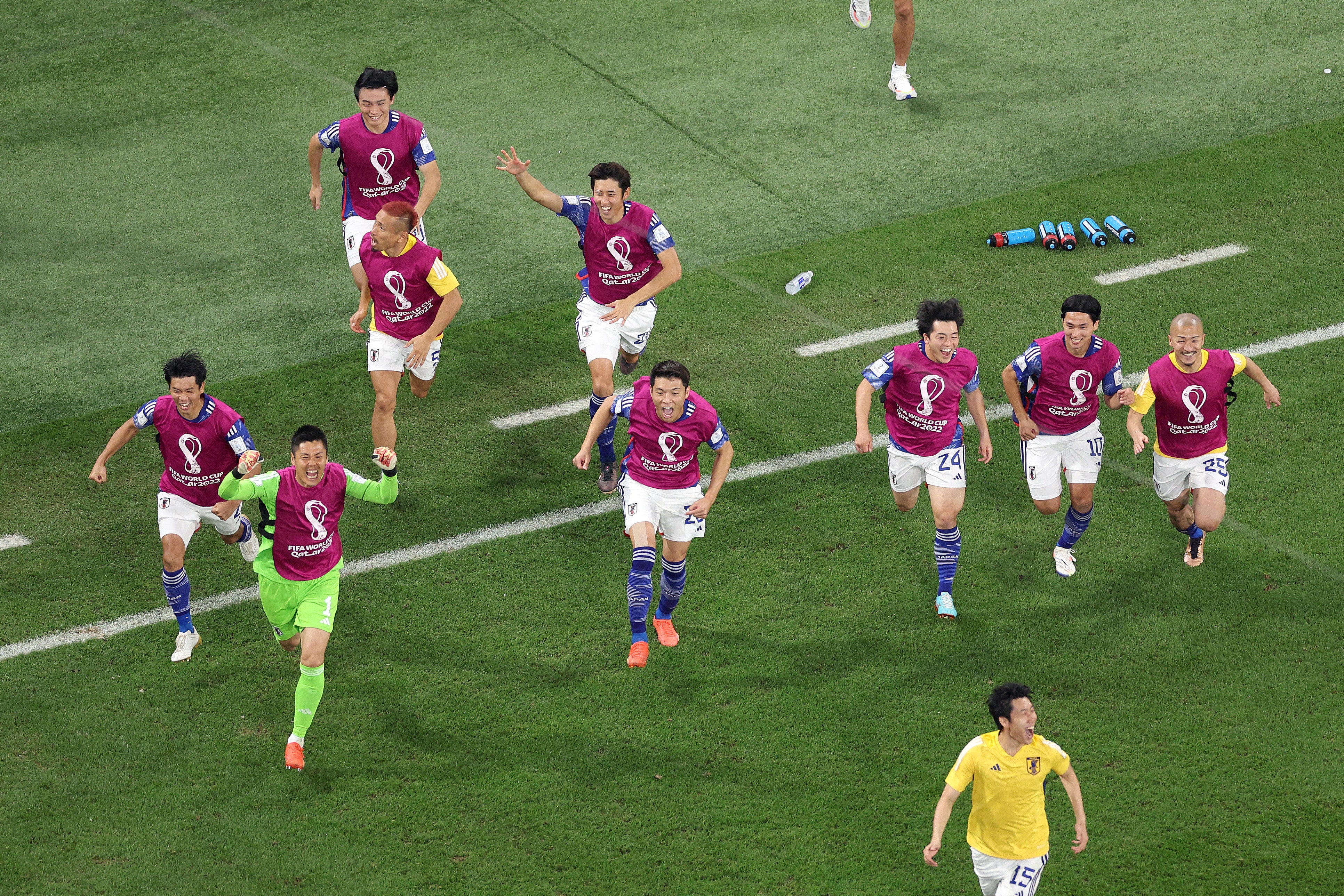
The ultimate lost cause; a win of historic proportions. A game of literal inches; a night of monumental drama. One former World Cup winner is out. Another no longer looks like potential champions. Japan, against that, have emerged as one of the stories and revelations of this tournament.
Kaoru Mitoma’s heroic chasing of a ball that seemed certain to go out of play saw Ao Tanaka score a goal for the ages on another night that will reverberate through football history. It didn’t just mean Japan did to Spain what they did to Germany with another 2-1 comeback. It meant they finished ahead of both in the group to subject Germany to the humiliation of elimination and Spain to the embarrassment of finishing second after having almost everything their own way.
They now look flawed and vulnerable rather than imperious and victorious, as well as pathetically dependent on a German favour.
It was, in truth, a night when justice was done after all sorts of trials and errors. Everyone got what they deserved. Japan are full value as group winners, since they were the one side that gave everything they had. Spain did not deserve to win either the game or the group given how arrogantly complacent they became in their own quality. Germany couldn’t beat Japan and could barely muster a victory against Costa Rica.
It ended up being what Spain required. They no longer look anything close to favourites. An irony, however, is that they arguably have a more forgiving path through. They shouldn’t take Morocco too lightly on this evidence, though. Japan will meanwhile fancy facing anyone as they take on Croatia.
Qatar has more memorable moments, more nation-making performances, with which the country will always be associated. That’s sportswashing. It makes it all the more pointed that – on the pitch – this was football at its purest, with all its glorious unpredictabilities.
After so many twists, it’s remarkable to think the evening actually started with utter predictability. Germany were leading Costa Rica. Spain had once again made a game so comfortable for themselves.
It even came from something tried and trusted. Cesar Azpilicueta and Alvaro Morata had often linked up at Chelsea, particularly with one fine goal against Manchester United, and this was very similar. The right-back swerved in a cross that was so well struck and inviting that it made it almost impossible to miss, and Morata duly obliged.
It would be easy to make a joke about what the striker often does but this has been a good World Cup for him, individually, as he made it three goals in three games to become joint top scorer.
Spain maintained nothing like that sharpness. Unai Simon was again so sloppy.
A casual laxness had started to come into their play even before that, with Sergio Busquets playing an under-hit ball towards his own box. Junya Ito leapt on it to set up Tanaka, and the ball went narrowly wide.
It should have been a warning to Spain. It wasn’t heeded.
Instead, Japan evidently saw they could get at Spain. The transformation after half-time was remarkable. With Spain reverting to the most casual and passive style of possession, Japan just hounded them into bad pass after bad pass, bad decision after bad decision.

Simon, again, was at the centre of it.
He had inexplicably tried a drag-back near his own goal, leaving him no other option than to go for what he had been refusing to do and just clear it. Ritsu Doan, on as a substitute, just sent it right back.
The forward hit a thunderbolt that went right through Simon’s hands. Good as the shot was, it could be argued that the goalkeeper had by that point messed up with his hands and his feet.
He wasn’t the only one. Spain couldn’t collect themselves. Previously so imperious on the ball, they suddenly looked the callow and inexperienced side their age suggests. And they were suddenly on the brink of going out, too.
Japan just overwhelmed them. They had the extra impetus. They were going the extra inch in a way Spain weren’t – literally. Mitoma just about got to a ball that looked certain it was out of play, somehow turning it back in for Tanaka to plunder.
Having been undone in strikingly quick time, Spain then had so much time to dwell on it as the moment inevitably went to VAR. Replays suggested it was just over the line. The technology indicated it hadn’t.

Japan had done it again. They were now winning the group again.
Spain were stunned but apparently not stung into a response. There was now a residual passiveness to their play that they couldn’t snap out of. It was as if they didn’t realise that, at that point, one solitary Costa Rica goal could have knocked them out.
It didn’t pan out like that, but not by any kind of design. It was instead chaos, as Spain briefly found themselves out of the top two.
Luis Enrique finally brought on the electric Ansu Fati for his first appearance of this World Cup, but he couldn’t rouse Spain on his own.

Spain couldn’t get through on their own.
They needed Germany to do them a favour. It was supposed to be the other way around. It was supposed to be very different.
It is possible that might serve Spain. This might be the jolt they need. This might sharpen them for a more forgiving path.
It’s just that, on this evidence, there are no certainties. Japan, by contrast, have proven they’re ready to take on anyone.







